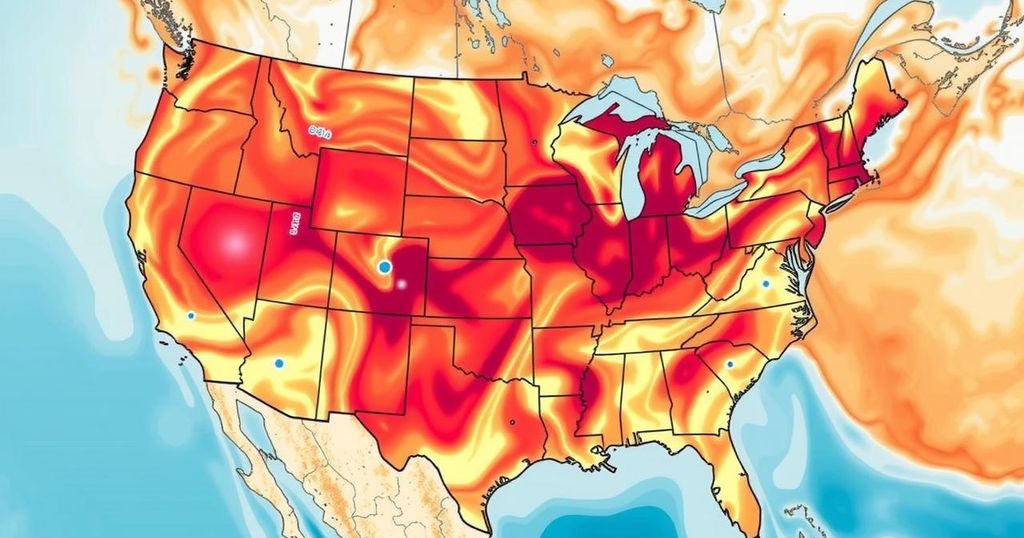2024 Records 41 Extra Days of Dangerous Heat Due to Climate Change
In 2024, human-caused climate change resulted in an average of 41 extra days of dangerous heat, significantly impacting health and economies worldwide. Economic losses from reduced labor productivity in India were projected at $141 billion. Reports urge a swift transition from fossil fuels to avert worsening climate disasters. Extreme weather events this year, influenced by climate change rather than El Niño, resulted in thousands of deaths and widespread displacement.
The year 2024 has witnessed an alarming increase in dangerous heat days, with human-induced climate change contributing an average of 41 additional days of extreme temperatures, adversely affecting both public health and ecosystems. The economic ramifications are significant, as highlighted by a Lancet study indicating a potential income loss of $141 billion in India alone due to decreased labor productivity related to extreme heat conditions.
Reports by World Weather Attribution and Climate Central emphasize the necessity for a rapid transition away from fossil fuels to mitigate the risks of ongoing heatwaves, droughts, wildfires, and severe weather events. The analysis indicates that climate change has intensified 26 out of 29 extreme weather occurrences studied, leading to over 3,700 fatalities and displacing millions worldwide.
Dr. Friederike Otto, a prominent Climate Science lecturer at Imperial College London, pointed out the severe impact of extreme weather, noting various disasters including hurricanes in the US, floods in Spain, and droughts in the Amazon. Moreover, 2024 has been recorded as the hottest year thus far, with an unprecedented number of heat days contributing to an extended period of record-breaking temperatures that commenced in 2023.
World Weather Attribution reported that the extra days of extreme heat represent the highest temperature benchmarks from the last three decades, significantly influencing the frequency of heatwaves, floods, and other severe weather patterns throughout the year. While many early 2024 events were associated with the El Niño phenomenon, the consensus remains that climate change has played a more pivotal role in these instances, as evidenced by the historical drought in the Amazon.
The escalating frequency and intensity of extreme weather phenomena is closely tied to human-induced climate change. The year 2024 has showcased record levels of heat, prompting serious concerns regarding public health, economic stability, and environmental integrity. The role of fossil fuel reliance is under scrutiny as reports advocate for immediate action to curtail emissions and transition to sustainable energy sources, in response to the alarming patterns of global warming that have persistent implications for future climate events.
In summary, the year 2024 has marked a concerning trend with an additional 41 days of dangerous heat attributed to climate change, exacerbating existing challenges in health, economy, and environmental sustainability. The necessity for proactive measures in reducing greenhouse gas emissions and advancing renewable energy strategies is more critical than ever, as we confront a future fraught with the repercussions of climate-related disasters.
Original Source: www.businesstoday.in




Post Comment